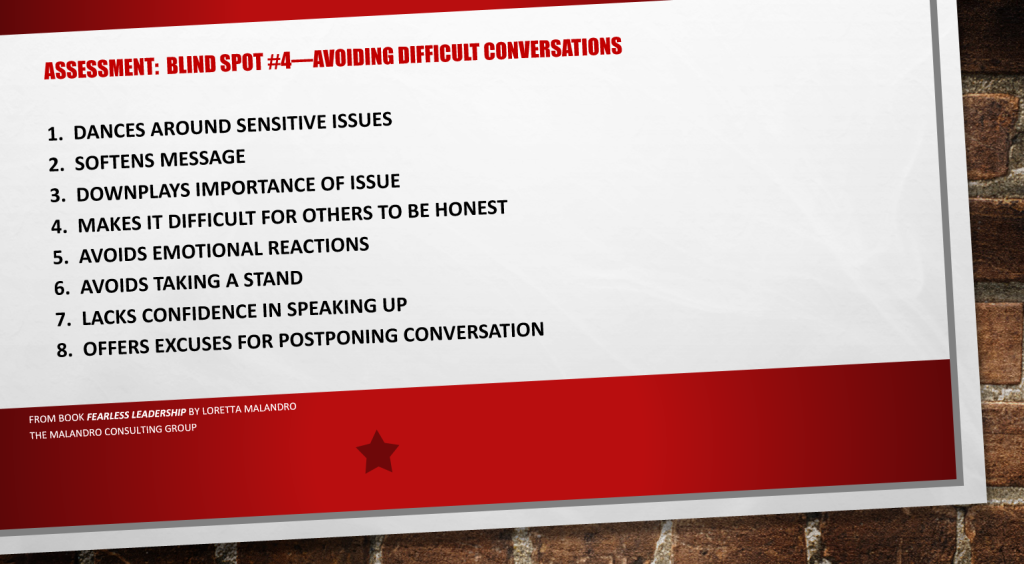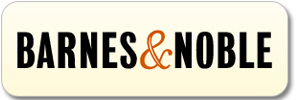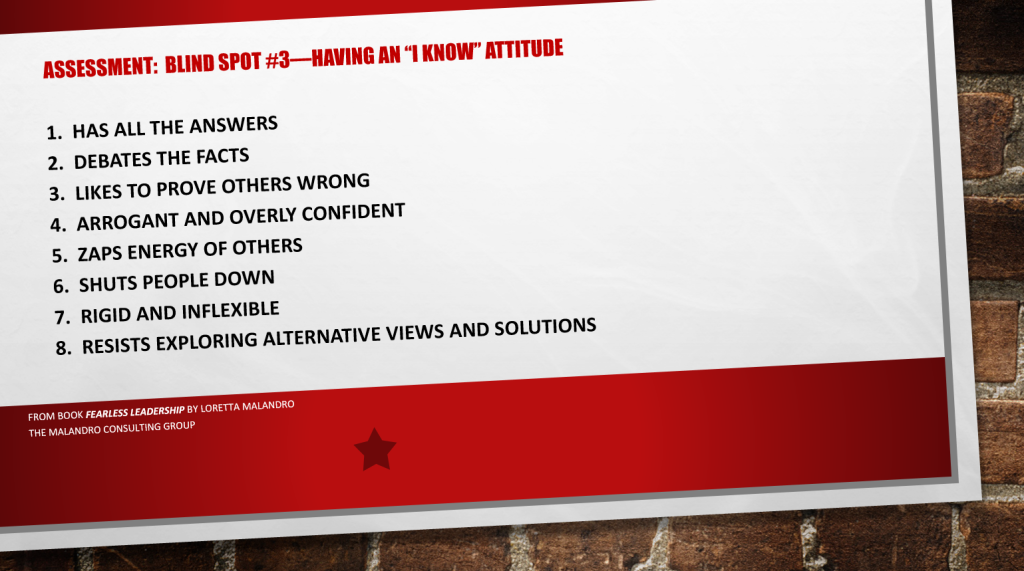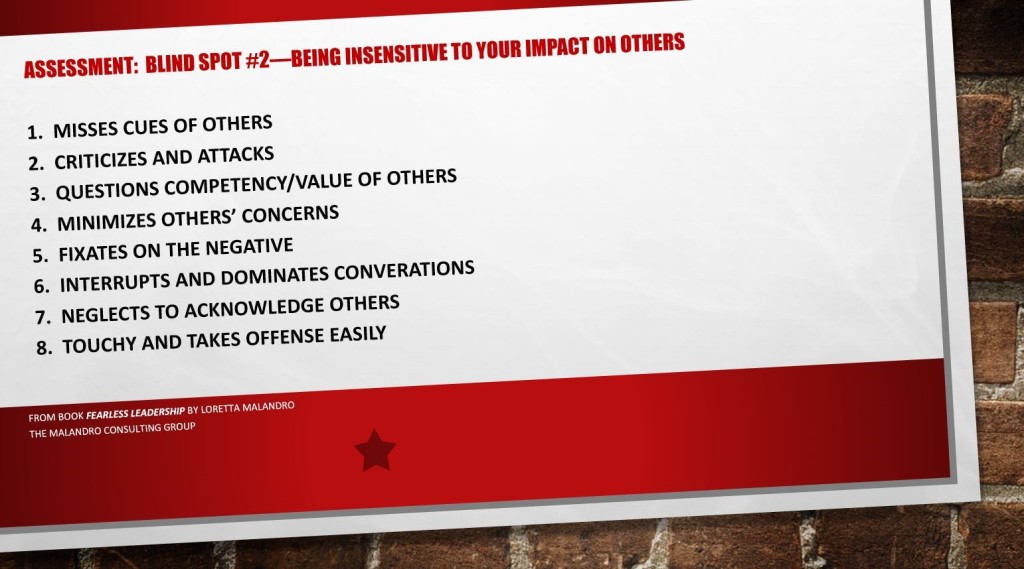
From the Author of Speak Up, Show Up, and Stand Out & Fearless Leadership
This is the fourth of 10 blind spots that can sabotage your effectiveness.
Blind Spot #4–Avoiding Difficult Conversations. What it Means.
The definition: Avoiding the discomfort of dealing with certain topics and/or people.
If you have this blind spot you may also have a fear: Having a difficult conversation will make things worse.
The Downside of Avoiding (and Postponing) Tough Conversations
Do tough conversations make you feel uncomfortable? Do you avoid them or postpone them?
The problem is: If you can’t talk about it, you can’t resolve it.
If you consistently avoid difficult conversations, people will perceive you as: weak, withholding your real feelings, and watering down your message. You’ll lose credibility when people discover they can’t count on you to be direct.
Do YOU Avoid Tough Conversations?
Ask others to rate you on the following items using the scale of 1 (rarely) to 5 (frequently).
How do you rate?
32 to 40: You shut yourself—and everyone else—down. People can count on you to run and hide.
17 to 31: You shy away from certain issues. Your behavior is inconsistent.
8 to 16: You speak up and handle tough issues. Just make sure you speak up responsibly.
Want More?
Read the book Fearless Leadership and the anti-blogs on The 10 Blind Spots.
Dr. Loretta Malandro is the CEO of the Malandro Consulting Group (www.malandro.com) and the author of several landmark business communication books including: Fearless Leadership, Say It Right the First Time, and her new book, “Speak Up, Show Up, and Stand Out: The 9 Communication Rules You Need to Succeed”.









